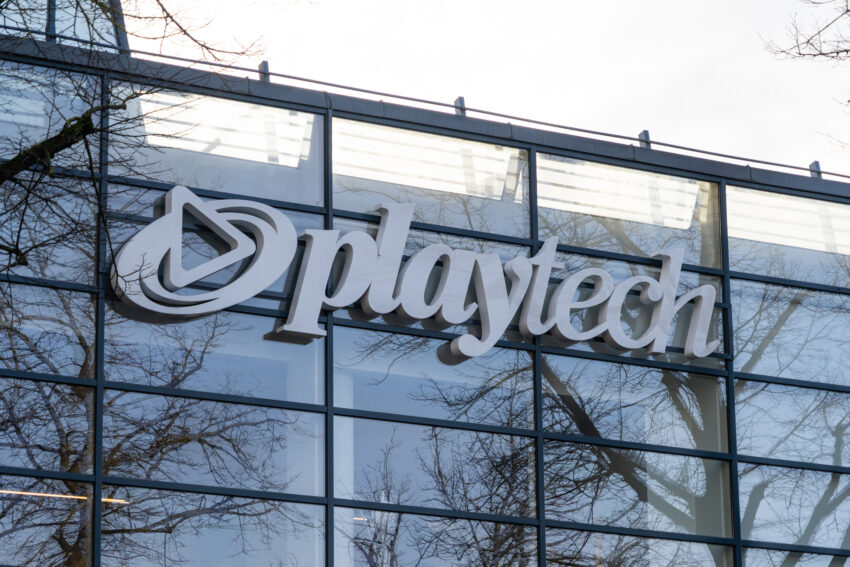Watchers of the iGaming industry have become increasingly interested a the bidding war.
This has erupted between rival parties looking to purchase software giant Playtech.
The drawn own battle between Australian megalith Aristocrat Leisure and a private equity bid in the shape of that forwarded by JKO Play values the Isle of Man business above £3 billion.
But what does such feverish competition to land one of the world’s most recognisable casino content companies suggest for the global iGaming industry in the years ahead?
Untapped Potential
Before the Covid-19 pandemic, the growth in the size of the online casino was impressive. However, growth has been even more dramatic since lockdown conditions stopped casino enthusiasts from making their way to land-based casinos and sports venues across the world.
By 2023, industry analysts at Statista suggest that the total value of the global online casino industry will hit $96 billion (U.S. Dollars), an almost 50% rise on 2020 figures.
It’s growth figures such as these that both Aristocrat and JKO will be banking on if they succeed in their pursuit of Playtech.
So, where is this growth to be found?
The United Kingdom is one of the world’s leading locations in the global online casino industry.
Some of the biggest names in the industry, from William Hill, to Betway, and Leo Vegas, all hold licences issued by the United Kingdom Gambling Commission (UKGC).
The U.K. was one of the first jurisdictions to allow online gambling, as long as firms that brought this content to the masses complied with strict licencing restrictions.
These rules sought to ensure that vulnerable individuals would be unable to access casino content and that crime would have little influence on the industry.
The success that U.K. authorities have had in delivering on these ideals is still up for debate, but arguably casinos with their roots in the U.K are among the finest exponents within this field.
Surprisingly, though, very few governments globally have followed the path that the U.K. has gingerly trodden since the turn of the Century.
The lack of progress towards a deregulated online casino industry is why a boom in the global iGaming market is yet to fully materialise. And why firms such as Aristocrat Limited and JKO Play value content providers so highly.
Playtech is on the rise in all jurisdictions, but one that deserves particular mention is New Zealand.
Lawmakers in New Zealand continue to show a reluctance to deregulate their gambling industry. But when it does, firms like Playtech are likely to hit the jackpot.
Kiwi Comparison
Authorities in New Zealand have always viewed gambling with skepticism.
Gambling was banned for almost fifty years, in all of its forms, from the start of the 20th Century.
In the eyes of some, little has changed in the country.
New Zealand currently boasts six land-based casinos and access to New Zealand-based online gambling content is minimal.
The only betting sites with an attached.NZ moniker belong to the government-owned TAB NZ and My Lotto NZ sites.
TAB NZ allows locals to make pooled bets on all horse-racing events across the North and South Islands and, My Lotto lets New Zealanders place a bet on all the countries National Lottery products.
Other casino content accessed in New Zealand comes from abroad for the benefit of the population. Much of this stream hosts games created and marketed by firms like Playtech.
Given that the online casino industry in New Zealand has an annual turnover above NZD 500 million when the industry is viewed so dimly by legislators, what growth could feasibly be reached?
The U.K. Model
The New Zealand Government could do worse than follow the regulatory model that has been in place in the United Kingdom for the past two decades.
Indeed, all stakeholders may benefit from such a move.
The New Zealand Government could raise taxes by licensing online casinos domestically.
Instantly this would deliver many benefits.
The NZ Government could profit from the sale of licences and expect tax takes to rise from considerable growth in the market.
An NZ gambling licence would also weed out online casino providers that have no place in trading in any industry.
By turning a blind eye to the online casino industry, the NZ Government currently allow casinos to target its citizens who employ several unsavoury practices.
Casino enthusiasts will be less likely to be on the receiving end of exploitation if payout limits are kept low and payout request reversals are outlawed.
It will be in the power of local officials to dictate these terms if they grasp the nettle to take control of an industry that is now well and truly embedded in their backyard.
But all respectable firms that contribute to the iGaming industry can expect to be on to a winner.
By removing negative connotations that are currently projected onto the online casino industry in New Zealand, the market is likely to flourish.
Of course, this will be a boon for the biggest casino names who could hope to see member numbers rise substantially in a deregulated market, but content providers will also be in high demand.
Playtech, NETENT, Microgaming, and Evolution Gaming provide the content backbone for most successful online platforms. The income streams for these firms are likely to swell as demand for their products rises as a more liberal approach to gambling becomes the global norm.
Conclusion
Given the fight currently taking place over the ownership of Playtech, it seems that Aristocrat Limited and JKO Play have looked into the future, and they see big profits on the horizon.
It’s the choice of administrations such as the Government in New Zealand, whether they wish to claim a share in this jackpot or leave the riches for others to pick up.
